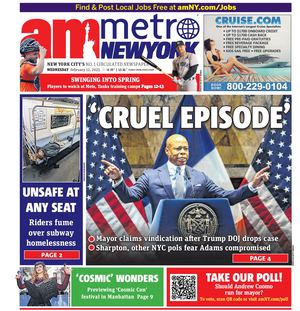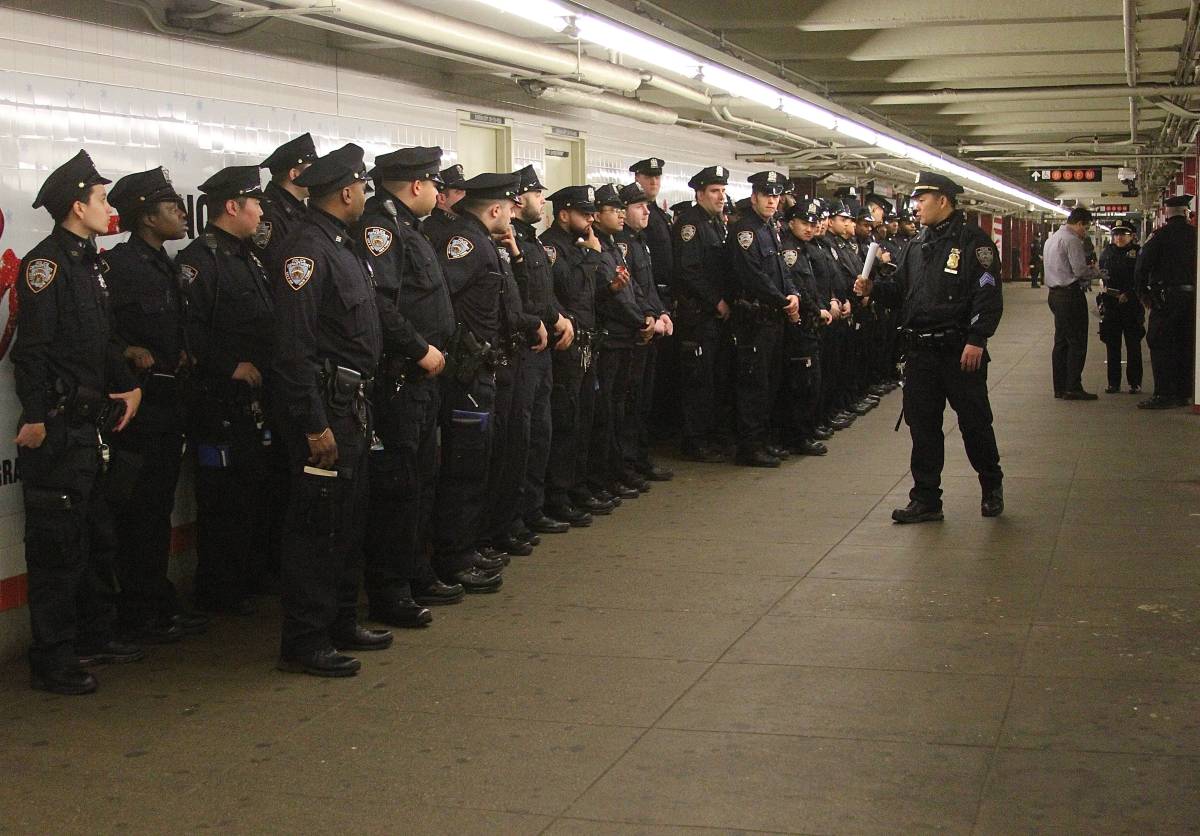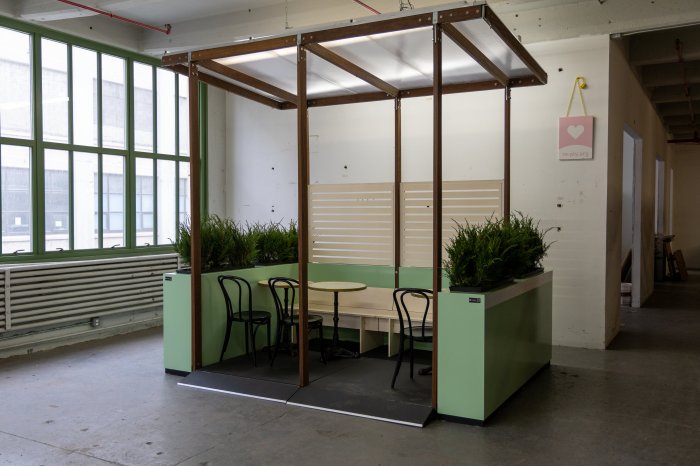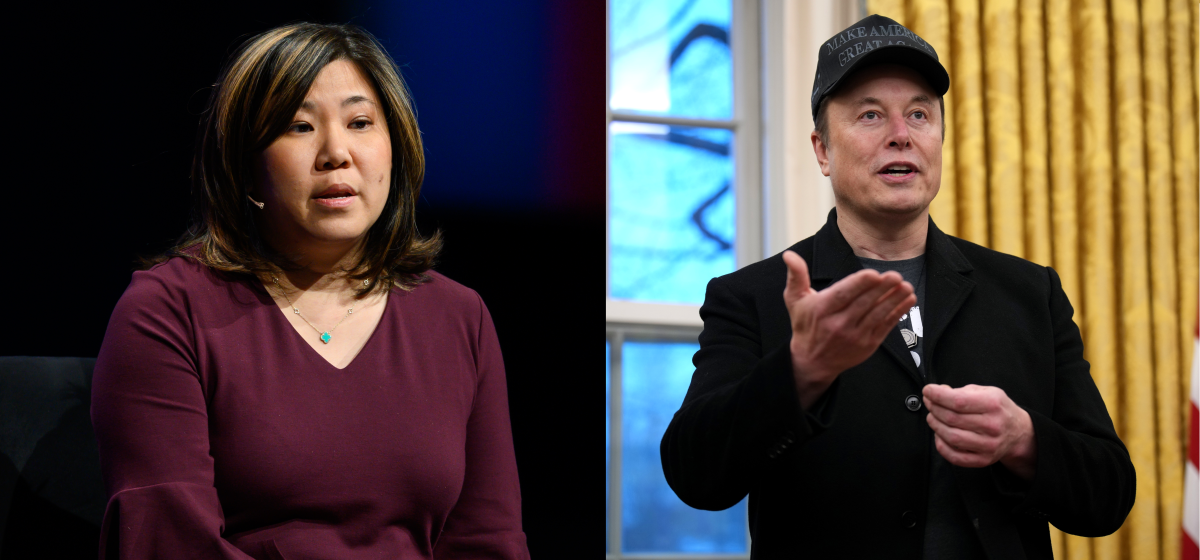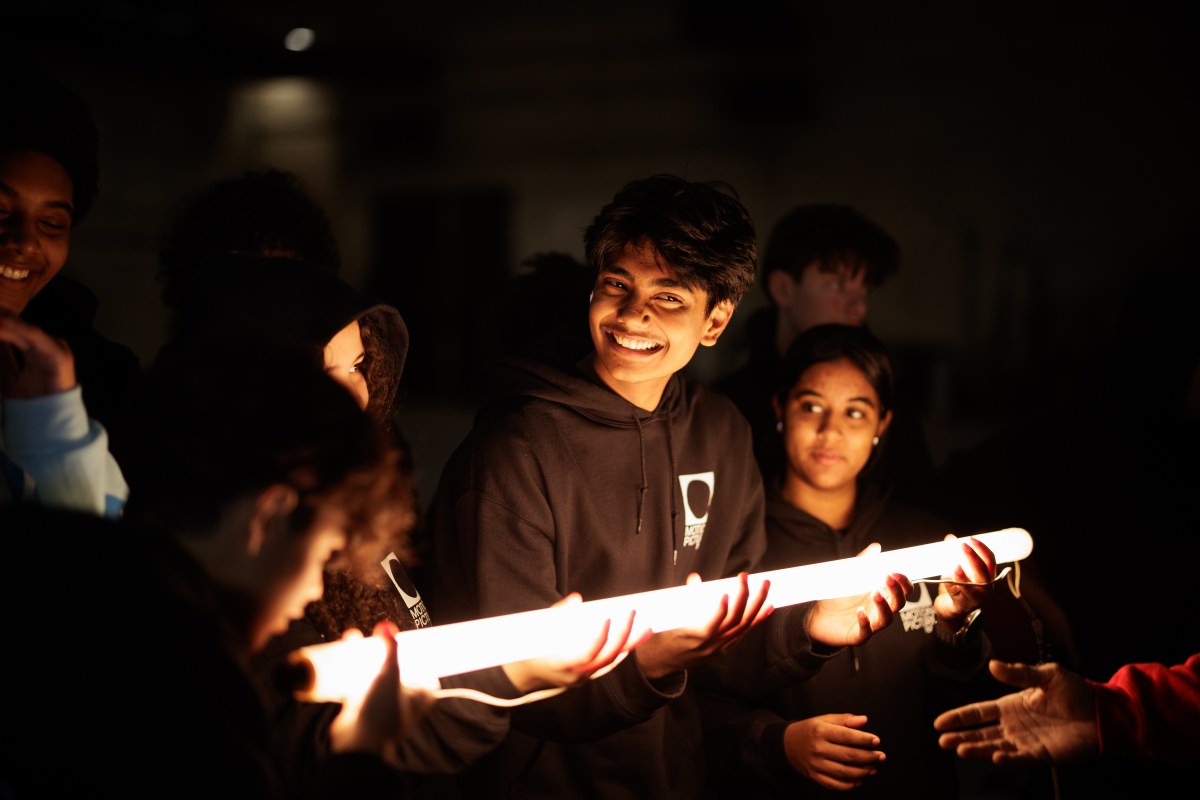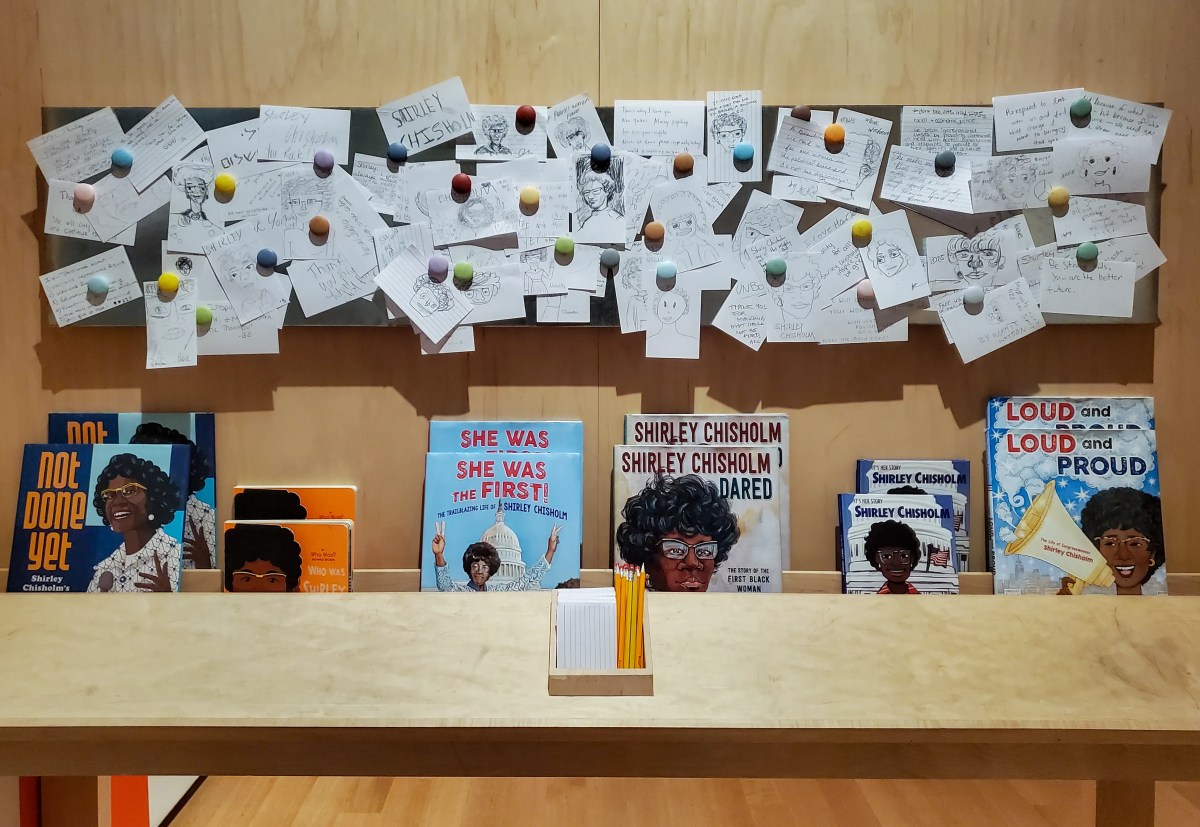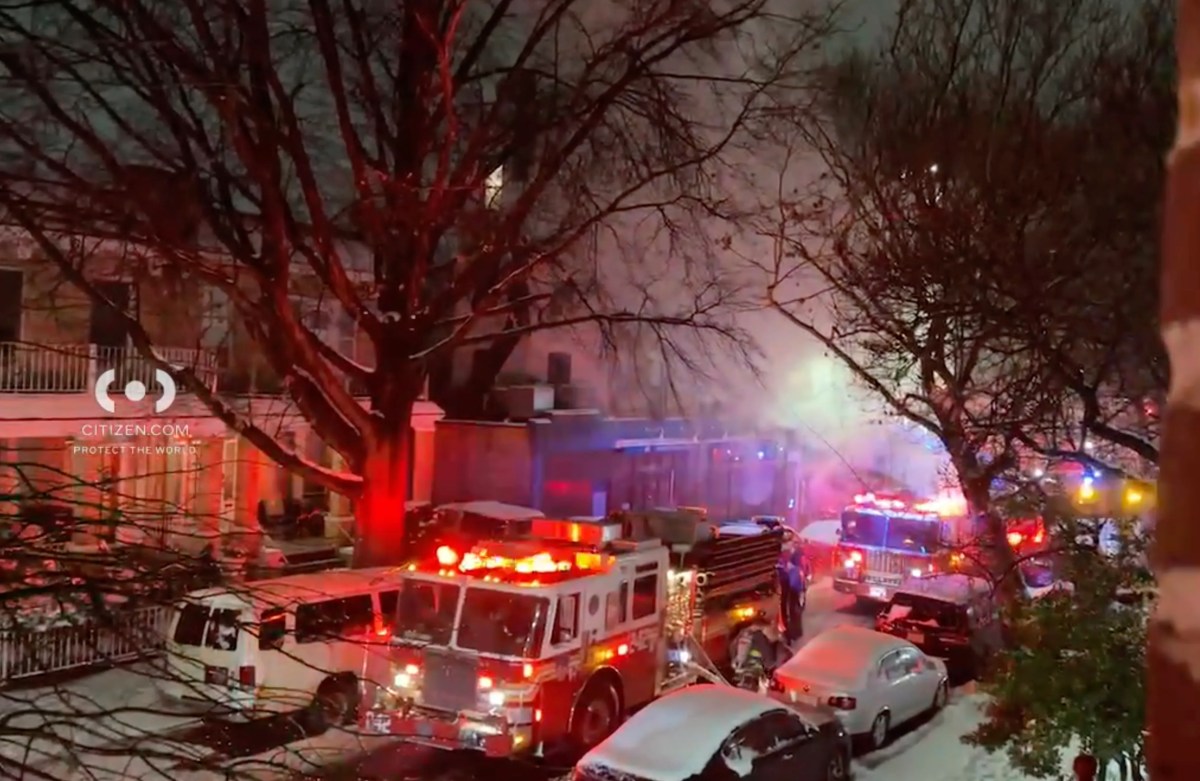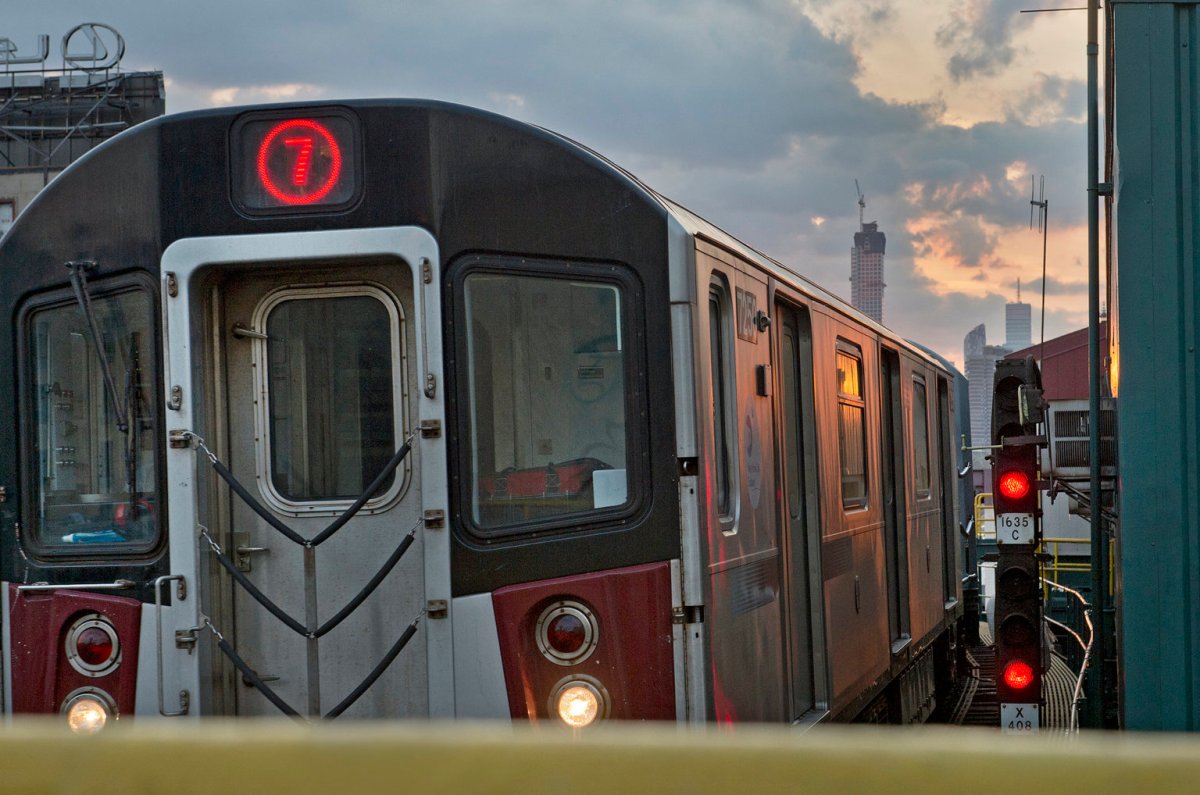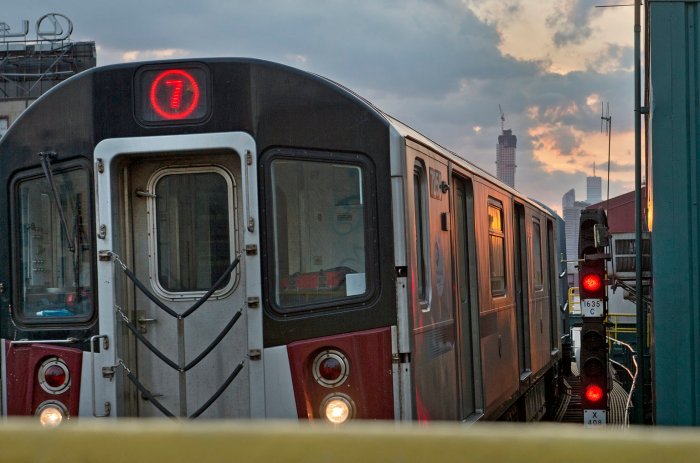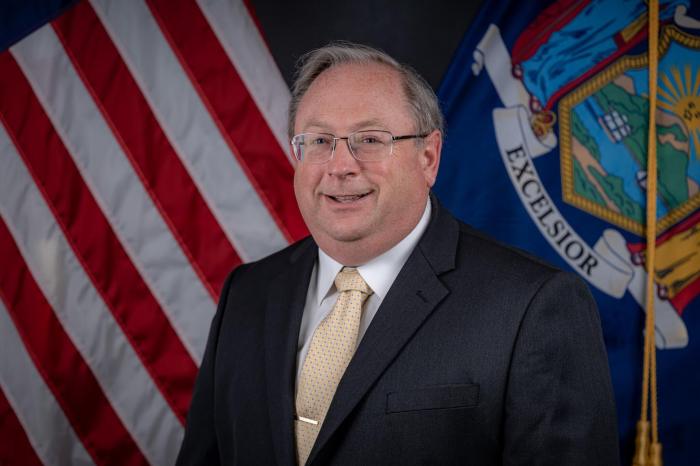The MTA board on Wednesday approved the hiring of 500 new cops to flood its transit system — even as it faced vocal backlash against a plan opponents believe will bring over-policing and a further criminalization of the working poor.
A sign-off on the hirings came through the board’s vote in favor of the authority’s roughly $17 billion budget for 2020, with the authority estimating the new MTA police officer will cost $249 million over the next four years.
Governor Andrew Cuomo, who controls the MTA, has made beefing up police presence a priority, believing it’s an ideal way to fight what he believes to be rising fare evasion; worker assaults and homelessness in the transit system.
“Our customers deserve reliable service, which we are in the process of consistently delivering…and our customers also deserve to feel safe and secure in the system,” said MTA Chairman Pat Foye. “At the same time, we need to balance our budget while funding these priorities, which customers, who are also taxpayers, deserve.”
Foye and other officials at times struggled to speak over protesters in the board’s meeting room, some of whom were forcefully removed as they interrupted with shouts of “no cops!” One protester was yanked out and pinned against a wall after he was seen “charging into the board area,” according to a spokesman.
The hirings will add to the roughly 2,500 NYPD officers who patrol the subways and buses and represents a 63% increase in the MTA’s existing police force of 783 officers. They will come as major felonies, generally, are trending down 3.7% through the year, according to NYPD data.
Foye has justified additional police by pointing to an increase in certain crimes, including robberies, hate crimes and aggravated harassments. But transit advocates believe that policing money could be better spent on providing more service. A recent report from the Riders Alliance found $249 million could bring a 15% increase in midday and weekend subway service.
From the criminal justice standpoint, advocates have warned that the new police would only exacerbate existing racial biases in policing through the transit system. Of the more than 5,000 New Yorkers were arrested for farebeating last year, 90 percent were people of color, according to city data.
Both groups have accused the MTA of using fare evasion to divert from their own operational failures and have staged a series of rallies against the new police in recent months.
While Mayor de Blasio has been supportive of the new police, his three nominees to the MTA board voted against the budget in part due to their opposition to the plan.
“In good conscience, I cannot support a budget that would allocate scarce public funds for more police when the argument for adding more law enforcement resources is so dubious,” said David Jones, one of three board members who voted against the plan, in a statement before the meeting.
“The MTA claims that fare evasion is on the rise and they need to rein it in to provide better service,” Jones continued. “If fare evasion is indeed on the rise – which is not obvious given the lack of credibility of the MTA’s survey methods – any viable solution must address the economic need that often drives people to do it.”
Congresswoman Alexandra Ocasio-Cortez and several colleagues sent a letter to Gov. Andrew Cuomo Tuesday calling for him to back off the new police and instead spend the money on bettering transit service.
“[W]e urge the MTA to divest from this current model of criminalization and invest desperately needed resources in our subways and buses, and, most importantly, in those communities that need updated modes of transportation,” Ocasio-Cortez wrote.
The MTA accused the elected officials of playing politics. Sarah Feinberg, a board member in favor of the hirings, echoed those accusations Tuesday evening, calling the letter an obvious “political maneuver.”
“Before you write your next letter, please imagine making your argument to someone who has been sexually or physically assaulted, and try explaining to them that their experience just isn’t quite worth an investment of more personnel,” Feinberg tweeted.
State Senator Julia Salazar, one of the letter’s signees, pushed back Wednesday morning on Twitter, noting that she had been sexually assaulted but still opposed the hirings “because fare evasion has nothing to do with violent crime.”
“Cynically trying to use sex crime survivors as fodder to justify hiring 500 cops to crack down on fare evasion is not OK,” she wrote.
At least seven protesters were removed for disrupting the meeting, including five who were issued summonses for disorderly conduct, according to an MTA spokesman.
Danny Pearlstein, a spokesman for Riders Alliance, said MTA’s ramping up of its police is a “throwback to Giuliani-era politics.”
“By demonizing transit riders over many months and heightening the rhetoric around fare evasion, homelessness and other issues–I think, in 2019, the governor touched a chord,” Pearlstein said. “The problems of over-policing go beyond just transit and the governor didn’t have to go there, but he went there. And he owns this.”
